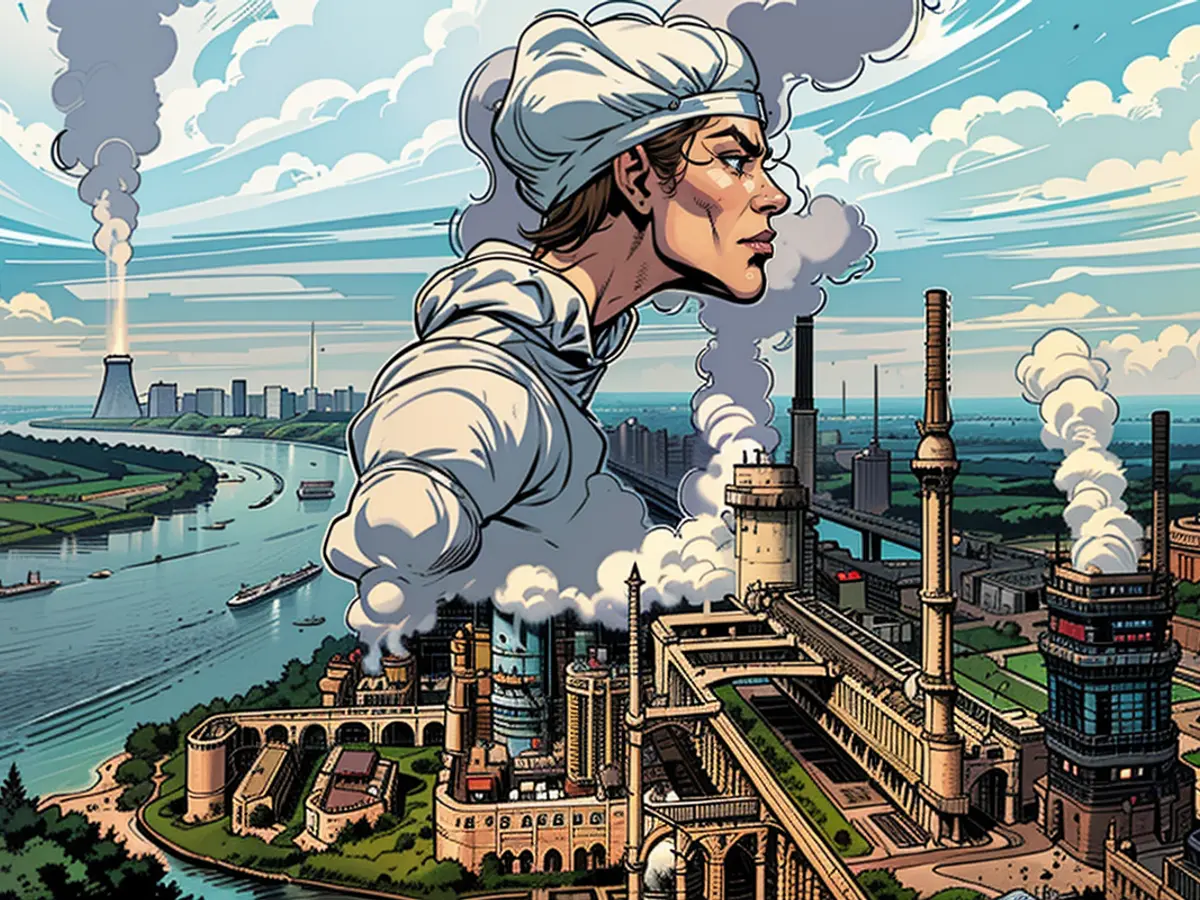If mismanaged, the automobile sector could potentially face a halt.
After the exit of Thyssenkrupp's steel division leadership and the oversight board, the division's future is up in the air. Previous chief supervisor, Sigmar Gabriel, once again slammed the parent company's management. The German government intervened from Berlin.
Following his resignation as Thyssenkrupp's steel division oversight board chairman, Gabriel voiced his disapproval towards the company's management and owners. In an interview with business magazine "Capital", he declared, "The company is just squandering time and money. The issues continue to linger."He bemoaned the inopportune timing for this escalation."The transition is happening when the steel conglomerate is undertaking massive projects._ They're building new steel facilities, a DRI plant for eco-friendly steel production, and converting an operational casting-rolling plant. Nobody has ever attempted something like this before." He issued a warning, "If this fails, Germany's automotive industry will come to a standstill."
Gabriel pointed to a strained relationship with Thyssenkrupp CEO Miguel López as the catalyst for his departure. "Mr. López has meddled directly in the steel division lately, ignoring us and impeding the local CEO in his work. He's created an environment akin to a gulag." This assessment was not his own, "but from people within the company." López's supporters, like the Krupp Foundation, don't bother him. "I'm not angry. But they just don't get it."
Decades of mismanagement
There have been contentious issues regarding the necessary financing for the steel subsidiary to operate independently. "If they wish to take the subsidiary public, then it must be equipped by its owner so it can do so." However, "López doesn't want to be the owner anymore, but wants to treat the steel AG like a bank. He wants to give it loans – and not even enough."
This fourth attempt to make the steel division independent has ended in failure – each time, a shortfall of 1.5 to 2.5 billion euros has been required. Gabriel attributed the division's crisis to decades of mismanagement, including the botched multi-billion-dollar venture to build a plant in Brazil, missed opportunities in the certificate trade, and postponed structural reforms.
Habeck Rails Against Corporate Leadership
Meanwhile, the German government has also criticized the corporate leadership. "We expect the responsible parties there to focus on their actual tasks," stated a spokesperson for the Federal Ministry of Economics. They must "assume responsibility for the company, for the employees" and also for the steel division's future.
Federal Minister of Economics Robert Habeck had previously expressed concern. "The situation at Thyssenkrupp has become stalemated on all sides," he told the "Rheinische Post". "That's not a good situation." Despite ongoing challenges, he advocated for continuing the government-subsidized, ecological restructuring of the steel division – a project valued at roughly two billion euros.
"Federal and state governments have provided concrete support to secure the steel location in Duisburg and North Rhine-Westphalia. But the corporate side must also contribute its share to ensure the transformation is successful and sustainable steel production is maintained at Germany's economic location," said Habeck.
Despite the German government's intervention and Habeck's advocacy for continued support, the future of Thyssenkrupp's steel division remains uncertain due to the internal strife and financial mismanagement within the steel industry. Gabriel's criticism of the company's management and their handling of the division's projects has raised concerns about the division's ability to successfully undertake its current initiatives.








